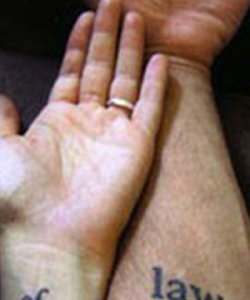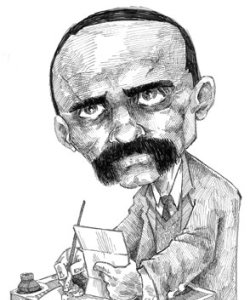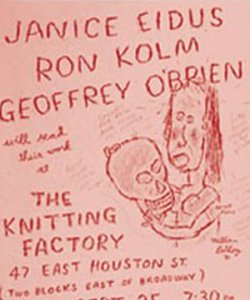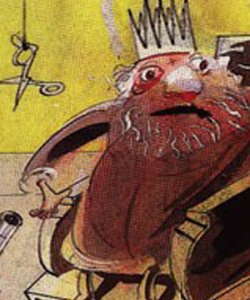Page One: Where New and Noteworthy Books Begin
This Page One features excerpts from Corrections to My Memoirs by Michael Kun and Home Remedies by Angela Pneuman.
Jump to navigation Skip to content
Articles from Poet & Writers Magazine include material from the print edition plus exclusive online-only material.
This Page One features excerpts from Corrections to My Memoirs by Michael Kun and Home Remedies by Angela Pneuman.
Not unlike European explorers five hundred years ago, the United States publishing industry is looking for a route to China. And, like those explorers, each company seems to be setting a different course.
The Council of Literary Magazines and Presses unveils the Submission Manager, software used to accept and track online submissions, resulting in less waste and more efficiency for writers and editors alike.
Small Press Points highlights the happenings of the small press players. This issue features No Tell Books and Perugia Press.
Executive director of Poets House Lee Briccetti talks about the relocation and expansion of the country's largest poetry library.

Images of participants who tattooed one word from Shelley Jackson’s 2,095-word story, “Skin,” on their bodies as part of her “mortal work of art” project.
Michael Stephen Fuchs doesn't seem particularly naive or susceptible to exploitation. The fast-talking writer has a successful day job as an Internet consultant, peppers his conversation with literary aphorisms, and, like many debut authors, can talk with an eloquence borne from personal experience about the iniquities of the publishing business. But according to some in the book trade, Fuchs has been suckered.
Literary MagNet chronicles the start-ups and closures, successes and failures, anniversaries and accolades, changes of editorship and special issues—in short, the news and trends—of literary magazines in America. This issue's MagNet features Oxford American, the Believer, Wholphin, McSweeney's, Rattapallax, the Reader, and Poetry Kanto.
Kathryn Starbuck has been around poets and poetry all her life, but she never wrote a single poem herself until about seven years ago, when she was grieving over the recent deaths of her parents, brother, and especially her beloved husband, the poet George Starbuck, who died in 1996 at the age of sixty-five, after a twenty-two-year battle with Parkinson’s Disease.

Taking cues from Letters to a Young Poet, published more than seventy years ago, the Letters to Poets project puts an updated spin on Rilke’s experiment in mentorship with organized correspondence between two distinct types of poets.
Literary MagNet chronicles the start-ups and closures, successes and failures, anniversaries and accolades, changes of editorship and special issues—in short, the news and trends—of literary magazines in America. This issue's MagNet features Ploughshares, Calyx, Gargoyle, and American Short Fiction.

A decade after the founding of Cave Canem, Eady speaks about the ways in which the organization has developed into a "safe haven for black poets."
Last year a total of 172,000 books were published in the United States. Although that number reflects a 10 percent decrease from the previous year, it's easy to see how any one book could get lost in the shuffle—especially if it's one among the many memoirs being published every season. With the idea that there's strength in numbers, four memoirists who published books earlier this year have joined forces to promote their titles, developing a community of like-minded authors—and fostering emerging writers—along the way.
This installment of Page One features excerpts from The Children's Hospital by Chris Adrian and American Genius: A Comedy by Lynne Tillman.

Art from Up Is Up, but So Is Down, a collection of writing and more than 125 photographs, book covers, and flyers that illustrate the dynamic, subversive work of the literary community known as "Downtown."
When fiction writer Barry Eisler heard last summer that Kepler's Books in Menlo Park, California, would close after fifty years in business, his first reaction was a loud expletive. His second was an e-mail to owner Clark Kepler with an offer to help. "I used to see those big author photos in the window…and I was working on what would become my first novel," says Eisler, the author of the Jain Rain series of thrillers. "My fantasies of literary success were all based on doing book signings at Kepler's."
Earlier this month Chronicle Books published Severance, a book of extremely short stories, each told from the point of view of a person who has been decapitated. Nicole Brown Simpson, John the Baptist, and Cicero are among the narrators. But Severance isn’t the work of some drooling, maniacal scribbler. In fact, the author, Robert Olen Butler, has published over a dozen books of fiction, including the Pulitzer Prize-winning short story collection, A Good Scent From a Strange Mountain (Henry Holt, 1992).
Let me be the last—the absolute dead last—to point out that we're in the midst of a memoir craze. My favorite form of procrastination used to be computer solitaire, but now I prefer to chat on the phone with my writing friends and discuss the ongoing boom in autobiographical literature. We speculate like housing developers prognosticating on the real estate market. Will the bubble pop? Will prices continue to rise? Will market trends ever again veer toward literary fiction?
Although Janet Fitch's Paint It Black, published this month by Little, Brown, is a work of fiction, the author drew inspiration from many genres, most notably poetry, while she was working on her follow-up to White Oleander.
Two weeks after he was chosen to succeed Ted Kooser as poet laureate, Donald Hall spoke about his newfound responsibilities.
Small Press Points highlights the happenings of the small press players. This issue features Seal Press and Bear Star Press.
Fueled by equal parts biodiesel gas and small press ambition, the Wave Books 2006 Poetry Bus Tour is scheduled to roll through forty-nine cities during the next two months, beginning in Seattle on September 4.
Literary MagNet chronicles the start-ups and closures, successes and failures, anniversaries and accolades, changes of editorship and special issues—in short, the news and trends—of literary magazines in America. This issue's MagNet features the Paris Review, McSweeney's Quarterly Concern, the Iowa Review, and Speakeasy.

Workman Publishing imprint Black Dog and Leventhal reissues King Lear and Macbeth, the illustrated Shakespeare plays originally published in the 1980s—before graphic novels acquired a mainstream audience—as part of its Graphic Shakespeare series.